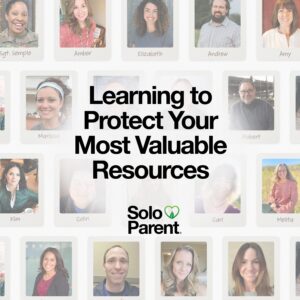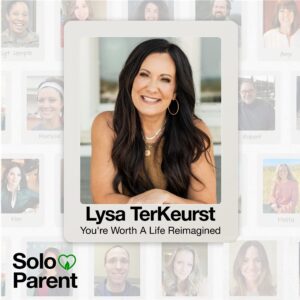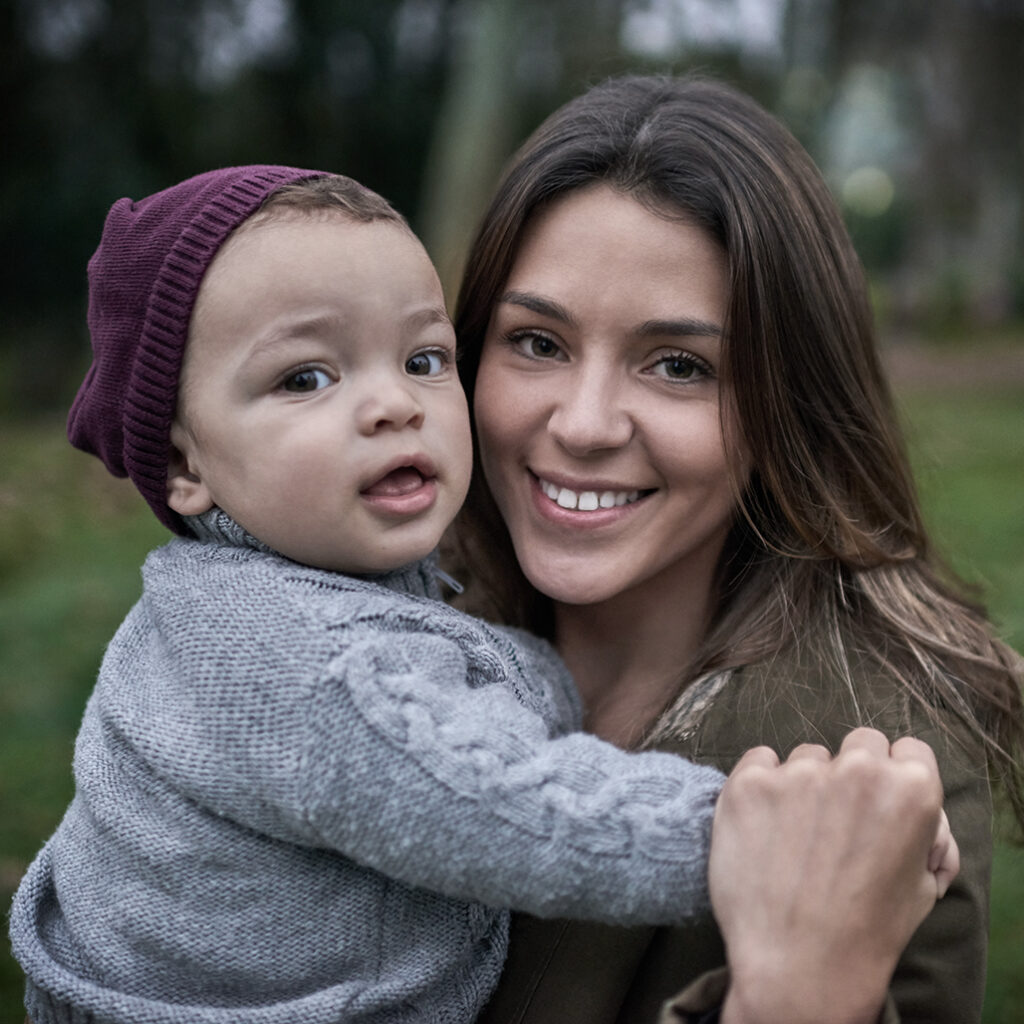It’s late. The house is finally quiet. Dishes done, homework signed, laundry folded. You should feel some kind of relief, but instead, your mind races through what still isn’t done. People talk about “self-care” like it’s a weekend getaway or a bubble bath, and you wonder if they’ve ever tried finding a sitter just to breathe.
For single parents, self-care can feel like a cruel joke. Not because it doesn’t matter, but because it sounds like one more impossible thing to add to the list. You’re already doing everything, working, parenting, paying bills, trying to keep everyone afloat. When exactly are you supposed to take care of yourself?
This episode sits right in that tension. It’s about the impossible gap between what culture tells us we should do to care for ourselves, and what’s actually possible when you’re raising kids on your own.
Key Insights from This Episode
- Why me time isn’t always realistic for solo parents
- How “us care” builds connection and rest at the same time
- Practical ways to create shared rhythms of care with your kids
Why me time isn’t always realistic for solo parents
We all know the advice: “You need to take time for yourself.” It’s well-intentioned, but for solo parents, it often triggers frustration or guilt. As Marissa Lee, author and single parent, shared after her husband passed away, she didn’t want time alone. “When Bill died, I didn’t want to sit with my thoughts,” she said. “I needed distraction.”
For many, being alone doesn’t feel peaceful, it feels heavy. Grief, anxiety, or exhaustion can make quiet time unbearable. On top of that, there’s the constant mental load. Work schedules, housework, finances, and parenting duties stack up so high that by the time you even think about rest, you’re already spent.
And then there’s the guilt. Parents are told to put their kids first. For single parents, that instinct doubles. As Elizabeth Cole, a single parent, noted, “Our kids have already been through so much, and we think we have to be the strong one.” You push through because there’s no one else to pick up the slack.
The truth? Me time often requires privilege, a sitter, money, margin, and most solo parents don’t have that luxury. As Robert Beeson, Founder/CEO of Solo Parent said, “Even thinking about carving out time for myself felt exhausting. It just didn’t seem worth it.”
That’s why this episode begins with a reframing. Maybe the goal isn’t to find time apart, but to find ways to rest and reconnect within the life you’re already living.
How “us care” builds connection and rest at the same time
What if self-care didn’t always mean being alone? What if it could be something you share with your kids?
Marissa discovered this by accident. In the early days after losing her husband, she and her kids would pile onto her bed to watch a show together. “We’d turn it off afterward and just start talking,” she said. “We’d laugh about our day, about the little things people said that hurt, or the weirdness of ‘Donuts with Dad.’ It became our thing.”
That simple routine became what she calls us care, a shared rhythm of rest and connection. Instead of striving to find “me time,” she started seeing time together as restorative too.
Robert resonated deeply with this idea. “When my girls and I had our alone time, those were the most treasured moments of my life,” he said. “It built a bond that was impenetrable.”
Us care isn’t about being constantly “on” as a parent. It’s not about teaching, correcting, or entertaining. It’s about letting your guard down—creating space to just be with your kids. When you do, you’re modeling something powerful: rest doesn’t always mean escape. Sometimes it’s togetherness without pressure or performance.
Elizabeth put it simply: “When we create these spaces, our kids learn how to listen to their own needs too.” She shared about a friend of her son who knows when to take a break, saying, “I’m going to rest for a bit, then I’ll come back.” That kind of self-awareness is learned—and it often begins by watching a parent practice it.
Practical ways to create shared rhythms of care with your kids
Marissa reminded listeners that the most sustainable rhythms are the ones that feel natural to who you are. “If you love cooking, make that your thing. If you hate it, don’t,” she laughed. “For me, it was building things, going on walks, watching shows, and going to concerts with my boys. It was about doing something that filled us all up.”
Robert echoed that shared care doesn’t have to be expensive or perfectly planned. “I’m not a camper,” he admitted, “but during my solo days, camping was something cheap we could do together. And even though I hated the dirt and cold showers, it became one of our favorite memories.”
Elizabeth brought a deeper perspective: not all rest is created equal. “There’s physical rest, but also emotional, sensory, and social rest,” she said. “Sometimes you’re not tired because you need a nap, you’re tired because your emotions or your senses need a break.”
Shared rest can look like:
• Building something together
• Taking a walk after dinner
• Sitting in quiet with soft music playing
• Reading side by side or doing a puzzle
• Swimming or playing together without screens
Robert shared one of his most meaningful rituals, Sunday nights when he would wash his daughters’ feet and pray over them. “It wasn’t about the act itself,” he said. “It was sacred because it was ours.”
As kids grow, these rhythms will change. Marissa put it beautifully: “You have to keep updating. They’ll outgrow things, but when I invest in us, I’m investing in me too.”
Listener Question
“Is it normal to feel grief and relief at the same time? I feel really guilty for feeling any relief at all about the divorce.”
Robert answered first: “A hundred percent. I remember being so ready to be done with the chaos and still grieving the loss of what we had. Those emotions can coexist.”
Marissa added, “After Bill died, my son struggled with that too. He missed his dad but was also angry. I told him, ‘It’s okay to love someone and be mad at them at the same time.’ It lifted the weight off him.”
Elizabeth shared, “We often shame ourselves for not feeling one clear emotion. But the truth is, it’s almost always both. You can feel grief and gratitude, anger and love, sorrow and relief. It’s part of being human.”
Stay Connected + Get Support
We want to answer any Solo Parent questions you may have. Submit your listener questions HERE.
Additional Resources:




